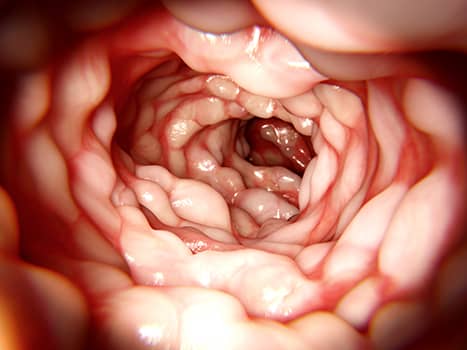Symptoms and treatments of Crohn’s through diet and a change of lifestyle
What is Crohn’s disease
Crohn’s disease is an autoimmune, inflammatory and chronic disease of the digestive system. It is to be differentiated from irritable bowel syndrome. It triggers abdominal pain, diarrhea, bloating, intestinal ulcers, weight loss and sometimes bloody stools.
The cause or causes of this disease are not known, although it seems that there is a hereditary factor and a problem with the immune system. There is therefore no definitive cure, only treatments to relieve the patient and limit the outbreaks of the disease that can put it in remission.
Natural approaches
It is essential to review the diet and embrace the emotional burden of post-traumatic stress in relation to an event that may have occurred in the past.
Thus, learning to cope with the ghosts of the past with a therapist is often a great idea to put into practice to promote healing work upstream.
Energetic medicine such as homeopathy, acupuncture and aromatherapy can also help stop inflammation.
Customized diet
Avoid refined and processed foods
Food sensitivities vary from patient to patient, but generally include spicy and fried foods, refined foods such as white bread and pasta, soft drinks, alcohol and caffeine.
Wheat products (gluten), cereals such as corn and oats, dairy products, pork, onions and yeasts also tend to aggravate Crohn’s symptoms.
Limit dairy products
Many people with Crohn’s experience gastrointestinal problems such as diarrhea and abdominal pain after eating dairy products.
Indeed, some people with Crohn’s are also lactose intolerant, which means they can not digest milk sugar (lactose) in dairy products.
Limit raw food fiber
Be careful with high fiber foods, including raw fruits and vegetables. For some people with Crohn’s disease, consuming large amounts of fiber, especially raw fruits and vegetables, may be too difficult to manage for their compromised systems.
Do not banish your fruits and vegetables completely, but eat them cooked whenever possible. Some people with Crohn’s disease respond to broccoli, cauliflower, cabbage, nuts, seeds, corn and popcorn.
Keeping a food diary can help you see what works and what makes the Crohn’s worse. In this way, you do not unnecessarily remove a healthy food (eg, broccoli) from your diet.
Prebiotics on the menu!
Increase consumption of prebiotics: consume more prebiotics, a particular form of dietary fiber that promotes the growth of healthy bacteria (microbiota and probiotics).
Prebiotic foods include foods such as asparagus, bananas, honey and oats, all of which are an excellent complement to any diet for Crohn’s disease.
However, as it is a type of fiber, it is important to monitor your reactions and pay attention to how you feel.
If some prebiotic foods or high-fiber foods are causing the symptoms, try replacing other foods until you find what works.
Eat smaller meals
If you want to avoid an outbreak of Crohn’s disease, it is best to stop overloading your body with meals that are too large.
In fact, by eating smaller meals, you reduce stress on the gastrointestinal tract. This can help reduce some symptoms of bloating, gas and cramps.
You can try eating smaller meals more often to help absorb nutrients.
Drink enough liquid
It is possible to lose a lot of fluid because of frequent diarrhea. Make sure you drink at least 8 glasses of 240 ml (8 oz) of pure water a day. Caffeine free herbal teas, bone broth and kombucha are also good choices. Indeed, they contain electrolytes, amino acids and probiotics.
Finally, avoid artificial sweeteners, especially sucralose (Splenda), as several studies show a link with worsening inflammatory symptoms.
Supplements to consider
An anti-inflammatory approach is essential:
- Anti-inflammatory diet excluding sugar and refined carbohydrates, dairy products and gluten grains/cereals (SABOTEK)
- Anti-inflammatory plants, including fermented and organic turmeric
- Therapeutic micronutrients combined with anti-inflammatory plants that will support the person in acute inflammatory phase
- Fibers of the guar gum type
- Probiotic-yeast like Boulardii
- Symbiotic as 35 strains of yeast-bacteria (Kefi-Soy kefir-kombucha)
- Stress modulation (stress creates inflammation)
Finally
In short, inflammatory bowel diseases are multifactorial and to relieve them, it is essential to remove all that creates inflammation in terms of food and psychological and ensure that it will have all the necessary elements for its nutrition.
Stress and emotional load are essential to consider in the equation of well-being and possibly the remission of Crohn’s.
References
Symbiotics for inflammatory bowel diseases
Effects of Non-Starch Polysaccharides on Inflammatory Bowel Disease



Recent Comments